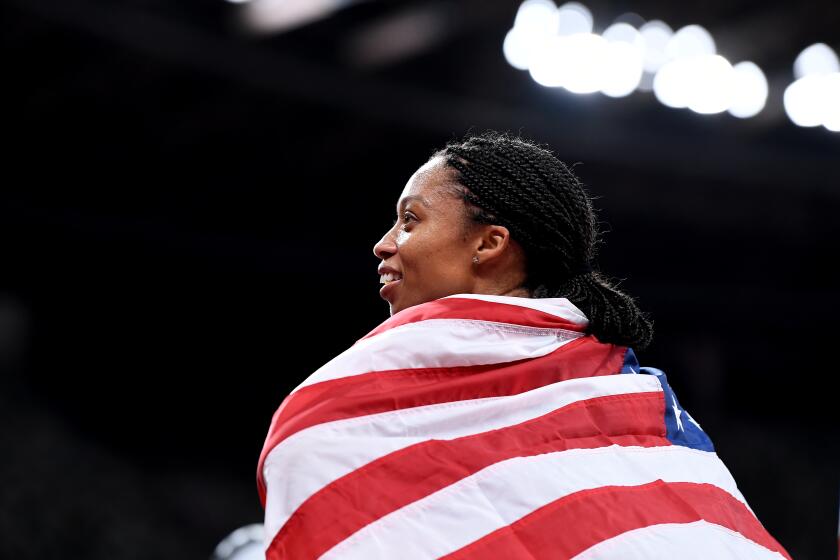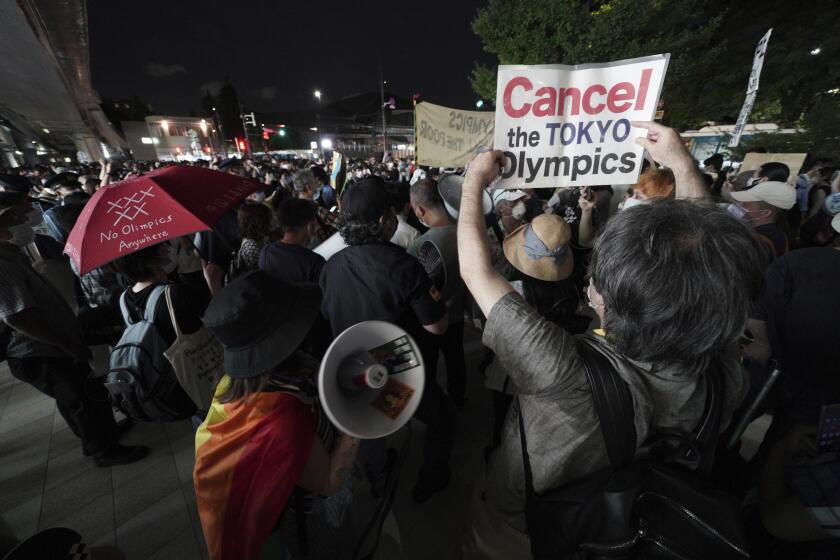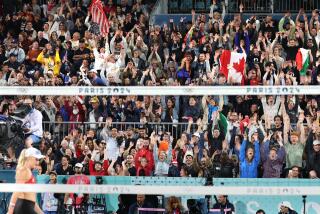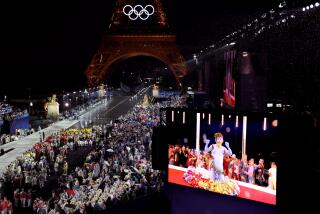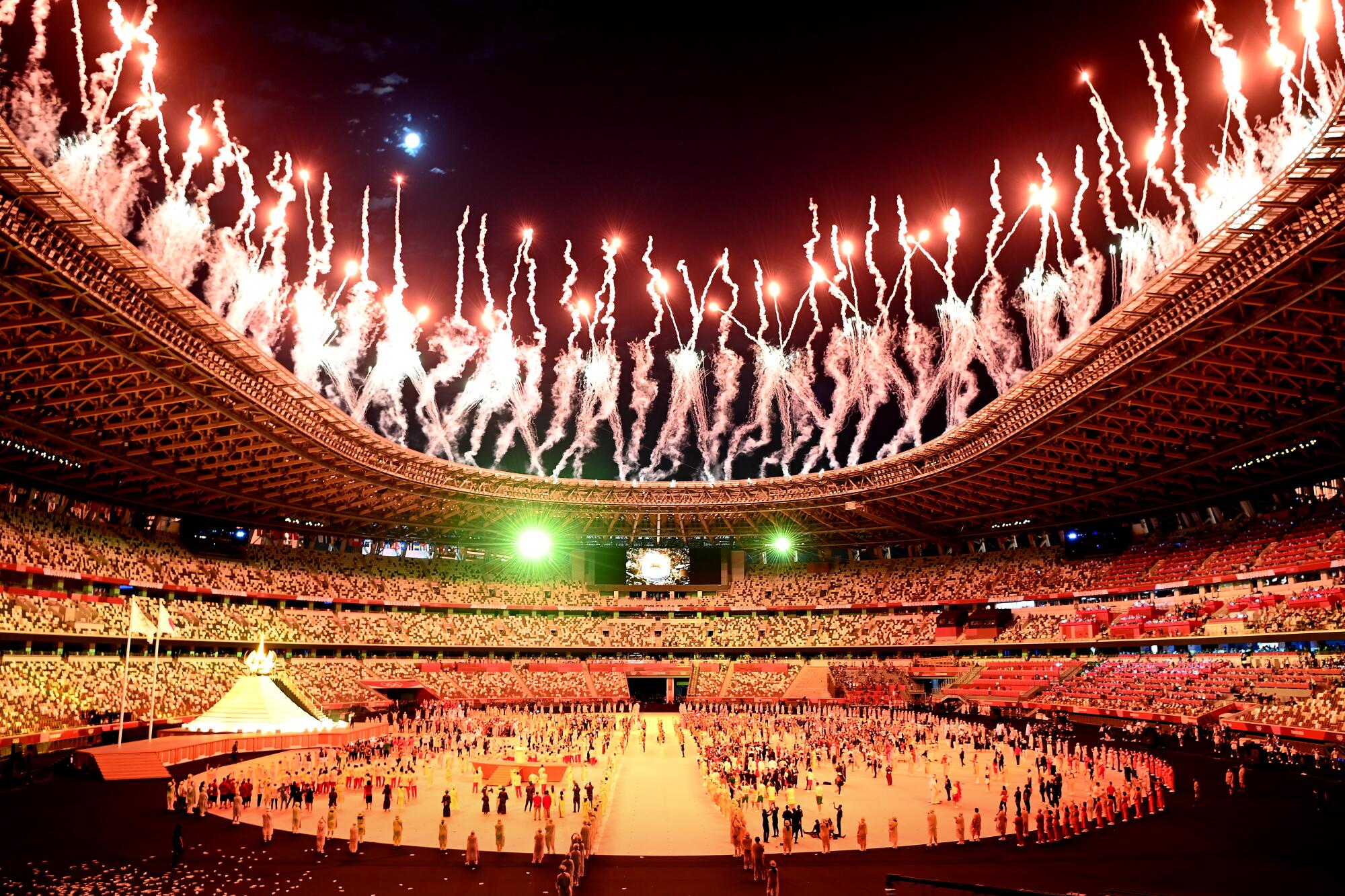
TOKYO — Dozens of men and women run across the field in a darkened stadium, keeping their distance from one another. They symbolize all the athletes who have trained in solitude during the pandemic.
The Japanese flag comes into view, borne by a small group of young people and healthcare workers. The national anthem is sung as if in prayer.
The Tokyo Olympics began Friday night the only way they could have, with an occasionally somber opening ceremony acknowledging the ravages of COVID-19 that forced this global sports event to be postponed a year.
With new coronavirus cases surging throughout Japan and much of the country in a state of emergency, there were few spectators in the stands, mostly just broadcast cameras, officials and reporters watching from the upper deck of Olympic Stadium, a gleaming if largely deserted venue in this city’s fashionable Shinjuku district.
News, results and features from The Times’ team of 12 reporters who covered the Tokyo Olympic Games in the summer of 2021.
“It was a very challenging year,” Toshiro Muto, director-general of the Tokyo Olympics organizing committee, said a few days earlier. “How can we make the Games something acceptable to the people? This is indeed a true test.”
For the next 16 days, local officials and the International Olympic Committee will conduct what amounts to a carefully monitored, made-for-television event.
Athletes will be tested for the virus daily and yanked from competition at the first hint of infection. Masks and social distancing will be enforced away from the field of play.
Crowd noise recorded at previous Olympics will be played over the public-address system at arenas, taking the place of fans who have been barred from attending.
“No spectators is disappointing,” said Yukiko Ueno, a softball pitcher who led Japan to victory over Australia in a preliminary game this week. “It’s definitely sad that they won’t be in attendance to support us in this Games.”
None of this quite elicits the joyous and often raucous celebration that has marked opening ceremonies of the past. On Friday, the Japanese were forced to strike a different chord.
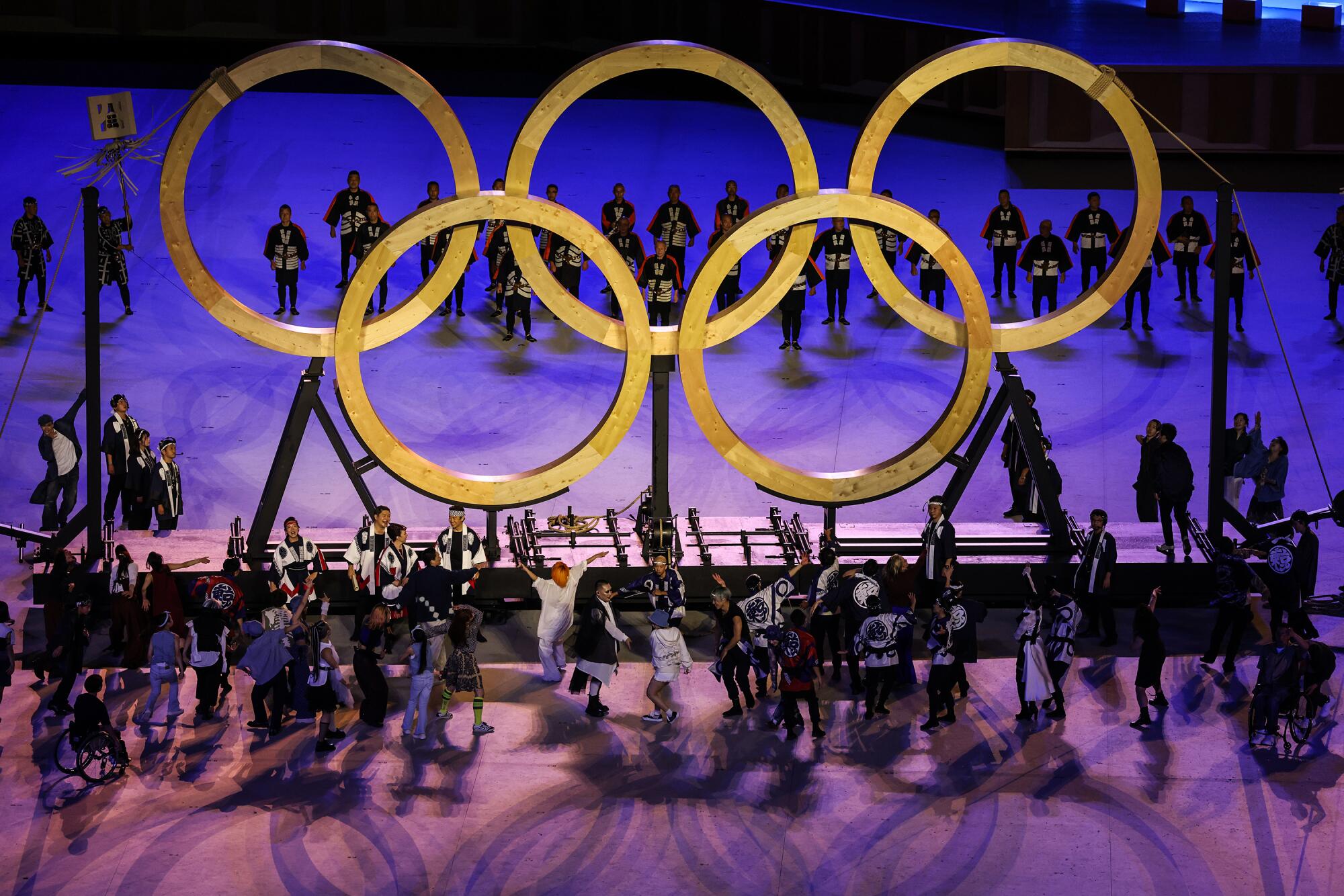
They offered a moment of silence to honor those lost to COVID-19, then looked back to happier times when Tokyo first hosted the Summer Games in 1964. A performance of the “Kiyari Uta,” a work song dating to the Edo period, paid homage to traditional crafts as giant wooden rings were carried in on a platform, surrounded by glowing paper lanterns.
The parade of athletes was accompanied by something more modern — theme songs from Japanese video games. There were fewer athletes than in the past, in large part because of “stay rules” created by organizers because of the pandemic.
Competitors were asked to arrive in Tokyo no sooner than five days before their event and depart within 48 hours of finishing competition. That meant less than half of the 613 athletes on the U.S. roster made the ceremonial march. Some countries brought only a handful of representatives.
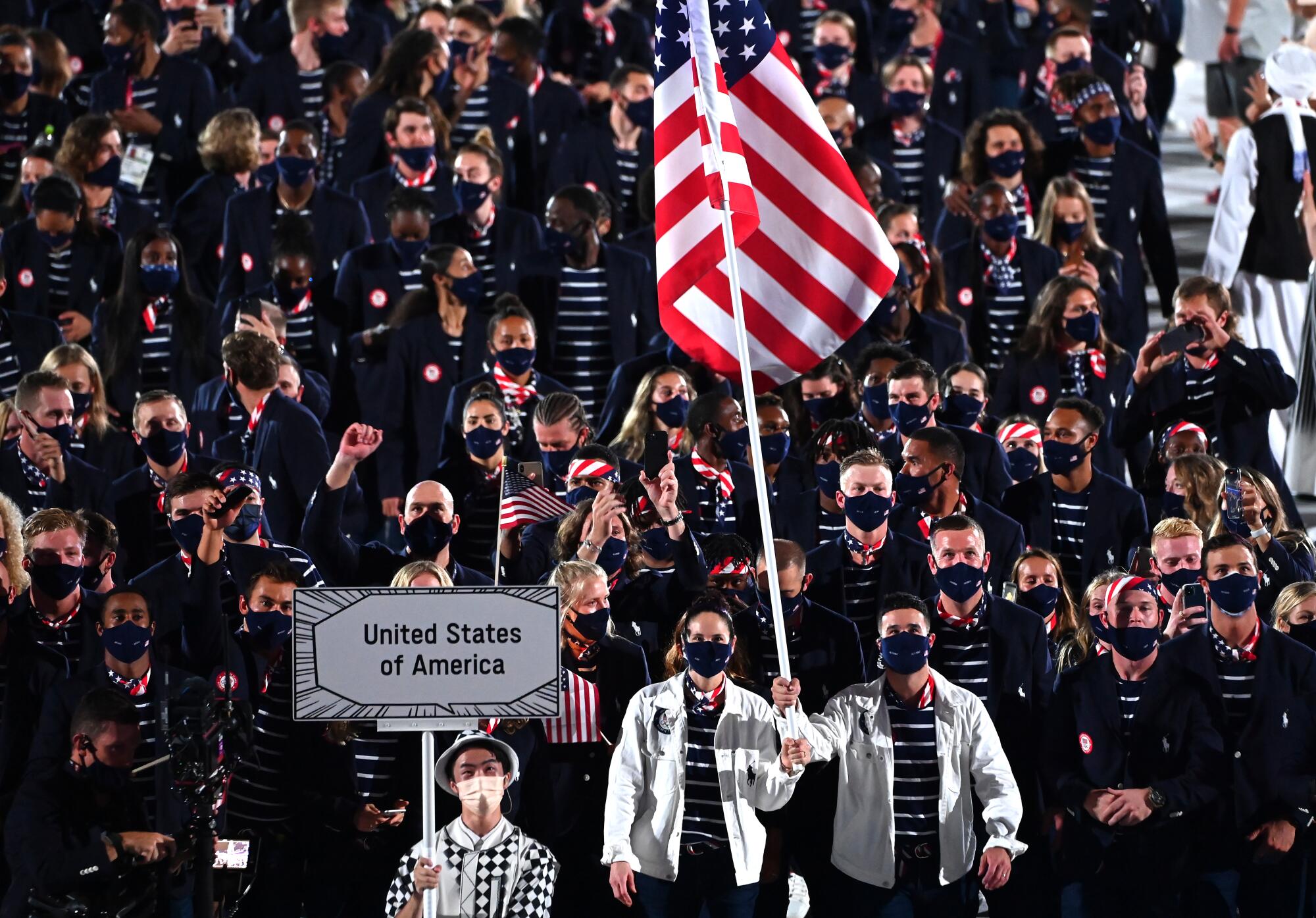
The organizing committee was tight-lipped about overall participation numbers, with spokesman Masa Takaya saying, “I can’t comment further on the ceremony’s details because I am not allowed.” But there were several issues leading up to Friday night that could not be avoided.
First, an official composer resigned after it was learned that he had bullied a disabled classmate when he was young. Then, a day before the ceremony, the creative director was fired amid reports that he had told a Holocaust joke during a comedy act in 1998.
Battered by reporters at daily news conferences, Tokyo Olympics executives apologized repeatedly.
“Yes, we are facing a lot of challenges right now,” President Seiko Hashimoto said. “Maybe that’s the reason why these negative incidents will impact the messages we want to deliver to the world.”
Forget about showcasing Japanese ingenuity to the world. The people in Tokyo can’t even be convinced that the Olympics will offer any value to them.
As if human-made calamities weren’t bad enough, early weather forecasts called for the possibility of a typhoon blowing into Tokyo during the festivities. Friday evening brought a reprieve in the shape of scattered clouds and only a trace of wind to ease the thick humidity so common to summertime here.
In the hours before darkness, excited residents gathered in the Shinjuku district, gravitating toward a grassy plaza where they posed for snapshots in front of the Olympic rings. Some looked toward the stadium as if they might catch a glimpse of what was transpiring inside, gasping as fireworks exploded in the sky.
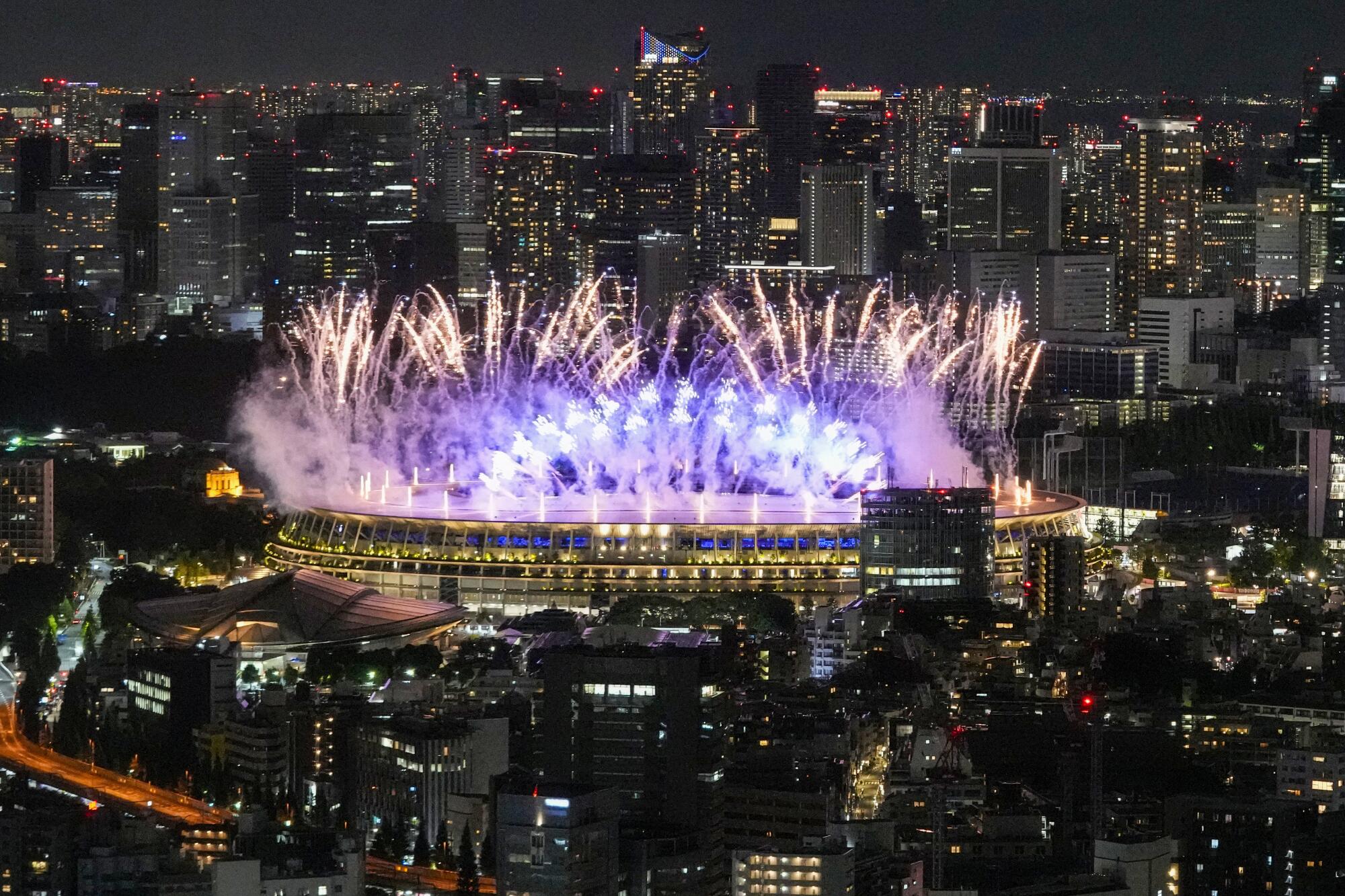
“I haven’t seen fireworks in ages,” said Jun Mabuchi, who came with his friend from college and stayed past the 8 p.m. state-of-emergency curfew.
Later, some of the crowds turned angry, sprinkled with protests over the estimated $20 billion or more that Japan spent on these Games. Demonstrators shouted, “Cancel the Olympics.” A man with a megaphone tried unsuccessfully to push past the barricade of policemen.
“It’s strange not to let us go through,” Takuma Wada complained.
Inside the stadium, things were picking up as the opening ceremony neared the end of four hours. Drones hovered overhead, forming a sparkling, spinning globe as singers John Legend, Keith Urban and others performed a prerecorded version of John Lennon’s “Imagine.” Mimes in blue-and-white costumes mimicked the pictograms for each of 50 sports, and jazz pianist Hiromi dazzled in a live performance.
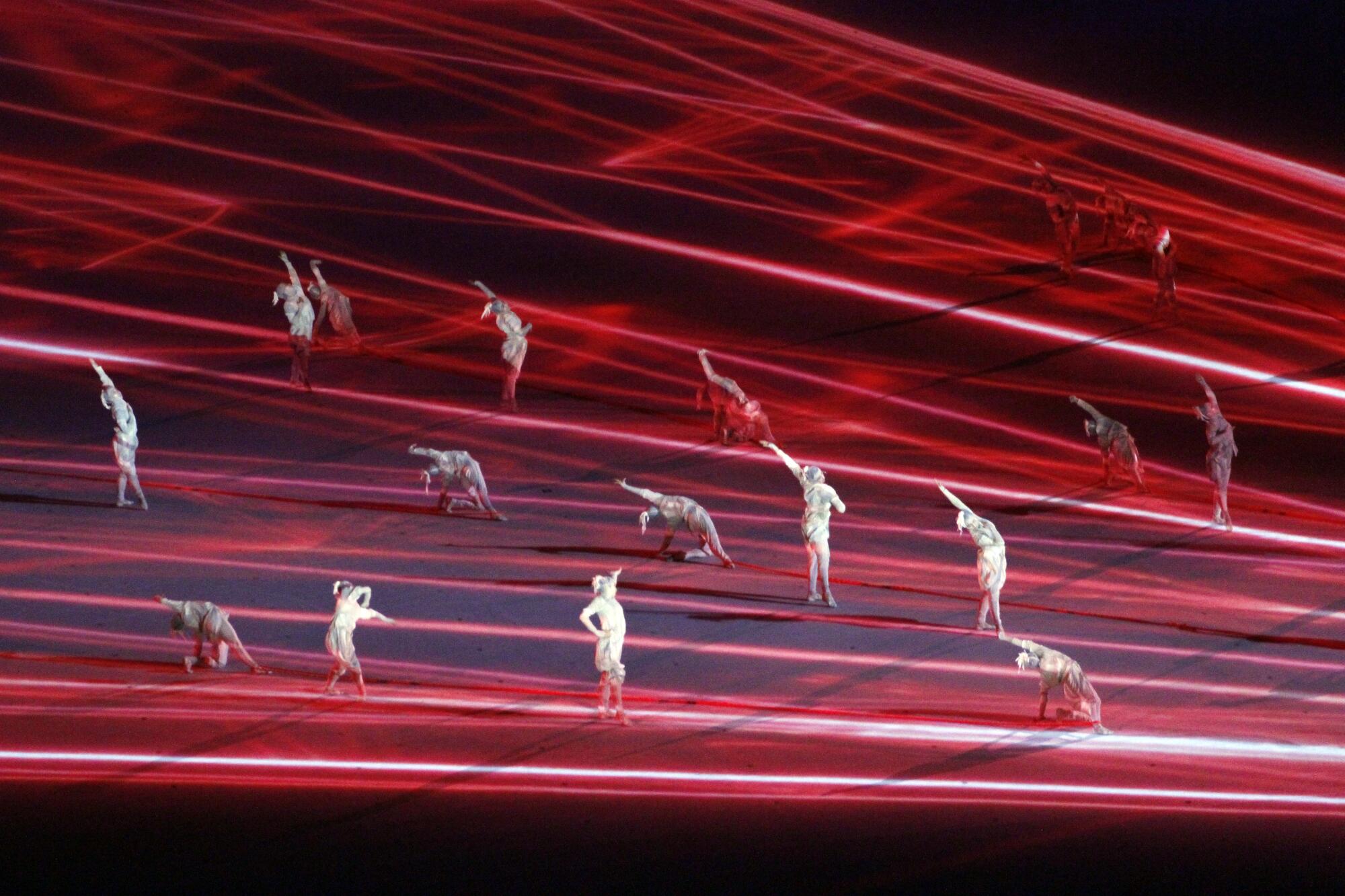
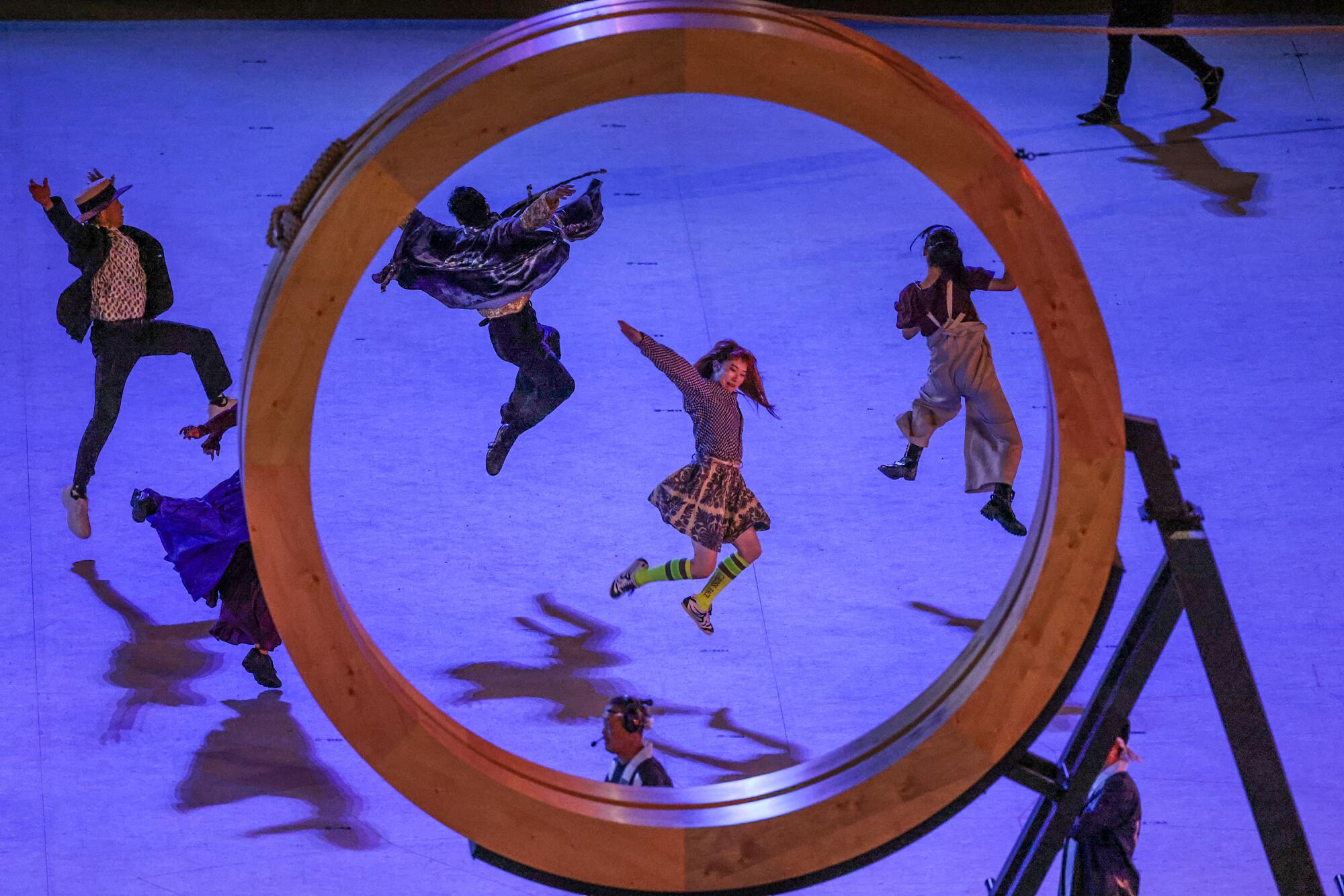
The customary Olympic mystery was solved as tennis star Naomi Osaka ascended a narrow set of stairs to light the cauldron.
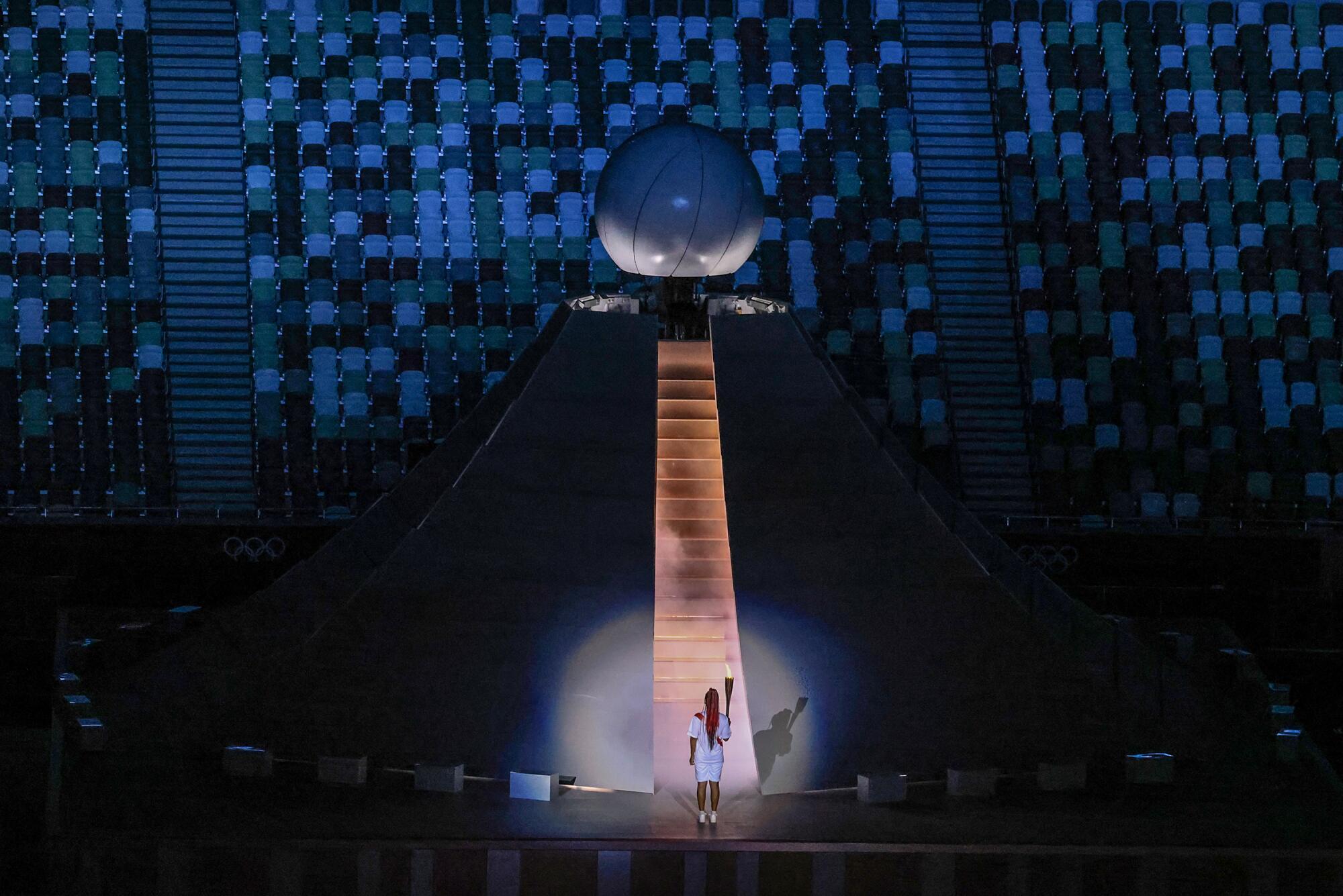
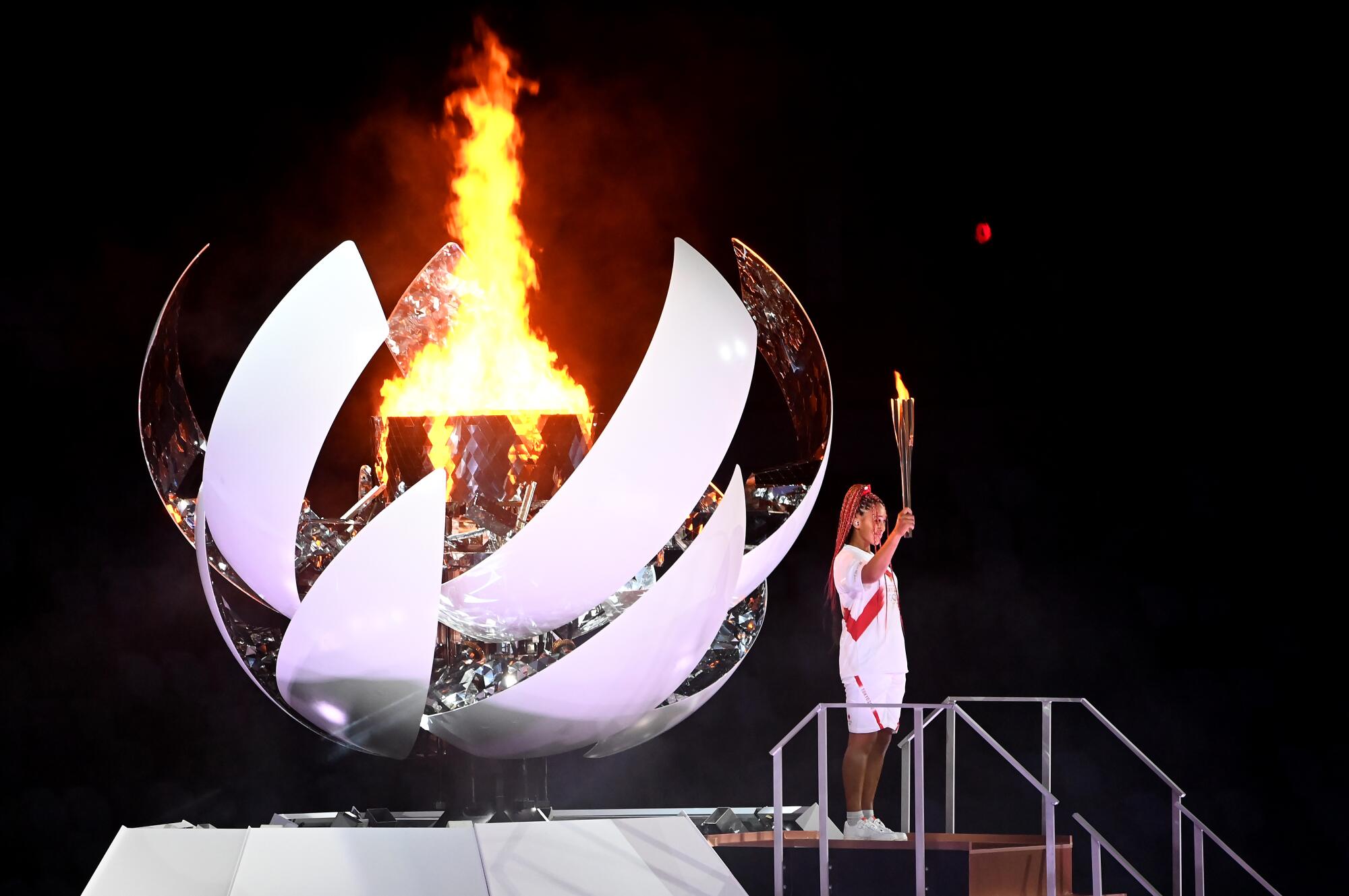
These moments stood out in a program that otherwise seemed as if it had been designed for television and made for close-ups, sparser than normal when viewed from the distant stands. Certainly, this ceremony did not resemble the customary Olympic party, but maybe officials needed to try something different.
“After more than half a century, the Olympic Games have returned to Tokyo,” Hashimoto said. “Now we will do everything in our power to make this Games a source of pride for generations to come.”
A few days beforehand, IOC President Thomas Bach had been asked how he might feel Friday night. He called on a roughly translated German proverb to describe getting the Olympics started after such a tough year.
“There is a saying that if you feel this kind of relief, there are stones falling from your heart,” Bach said. “So if you hear some stones falling, then maybe they are coming from my heart.”
Special correspondent Hanako Lowry contributed to this report.
More to Read
Go beyond the scoreboard
Get the latest on L.A.'s teams in the daily Sports Report newsletter.
You may occasionally receive promotional content from the Los Angeles Times.

